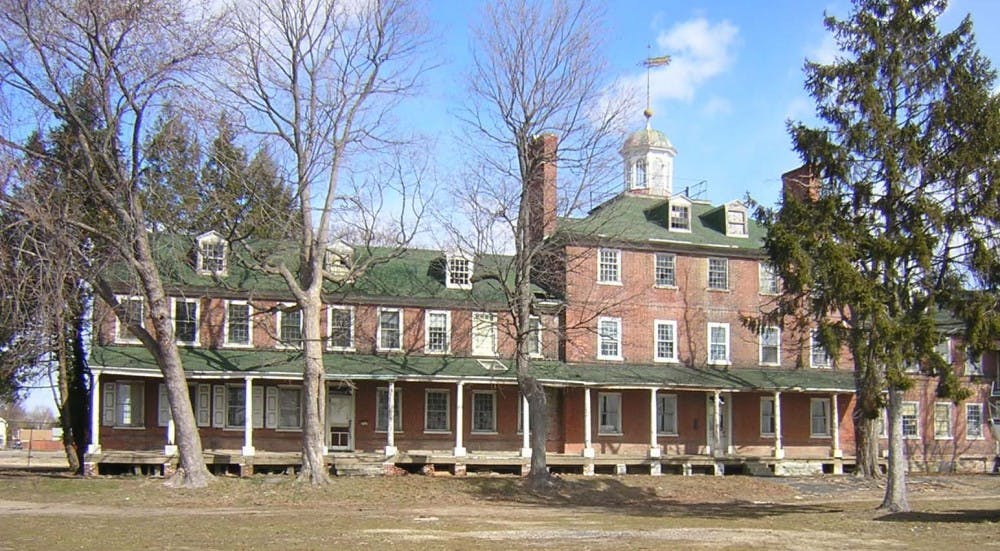
Researcher David Barnes, who is an associate professor of history and sociology of science, first encountered ghost hunters while working to restore the Lazaretto quarantine station. The study on ghosts as a cultural phenomena has brought researchers from different departments across Penn together.
Credit: Courtesy of David BarnesWhether you believe or not that ghosts could roam the floors of College Hall, they have certainly found a way into the University’s academic research.
Initiated this past spring, the Penn Ghost Project gathers a group of scholars from various disciplines — such as religious studies, history, nursing and literature — to study ghosts as a global cultural phenomenon. The group hosted a public symposium last Friday, and is planning three more events for the rest of the semester, including two ghost trips to Eastern State Penitentiary and Lazaretto quarantine station by the Delaware River.
“Most cultures have a belief in communicating with ghosts, either through ancestor worship or through rituals,” Justin McDaniel, associate professor in religious studies, said. “This is a worldwide phenomenon — a social and cultural reality — whether you believe in it or not.”
McDaniel has been studying ghost phenomena and religion for more than 10 years. He took the lead in founding this “faculty working group” in an effort to combine multiple perspectives on humanity and social sciences.
Related: ‘DP’ reporter explores the secrets of Penn Museum
“This multidisciplinary approach is going to be much more illuminating than simply religious studies approach or psychological studies,” McDaniel added.
One of those specialized perspectives comes from Assistant Dean for Global Health Affairs Marjorie Muecke, who has long worked as a nursing anthropologist. She started studying spiritual beliefs and practices when she was a doctorate student in northern Thailand.
“It was a time when hospitals just started emerging in major cities, so there was a lot of traditional peasant belief around,” Muecke said. “People often went to a spirit medium for healing. For many of the people, this is part of their life.”
There were also, however, faculty members who were more skeptical than Muecke when they first approached the subject, only to realize its intellectual value later.
David Barnes, associate professor of history and sociology of science, first encountered professional ghost hunters and genealogists in a campaign to restore and preserve the Lazaretto quarantine station, which was used to protect Philadelphia against epidemic disease from 1799 to 1895.
“When I first talked to these paranormal investigators, I thought it was crazy,” Barnes said.
After seeing the determination and historical rigor of these ghost hunters, however, Barnes realized that he shared with them a goal of “trying to establish a connection with the past,” he said.
Related: Penn team contributes to Nobel physics research
“But I’m taking a different route. I have a different way to find that connect — through documents, archives and publications,” Barnes added. “They find the connection partly through paranormal investigation.”
The Penn Ghost Project isn’t the University’s first attempt to uncover the mysteries of ghosts and other supernatural phenomena.
According to McDaniel, the University had a working group on spirits and ghosts in 1884 — called Seybert Commission — in which even former Penn President William Pepper took part. He added that the Penn Ghost Project actually plans to launch an investigation of the Seybert Commission’s records.
“We will look into what has changed in the approach of studying ghosts between 1884 and today,” he said. “We definitely want to bring in more modern techniques. We also highly encourage students to help to build our online bibliography and photo archive.”
The Daily Pennsylvanian is an independent, student-run newspaper. Please consider making a donation to support the coverage that shapes the University. Your generosity ensures a future of strong journalism at Penn.
DonatePlease note All comments are eligible for publication in The Daily Pennsylvanian.







